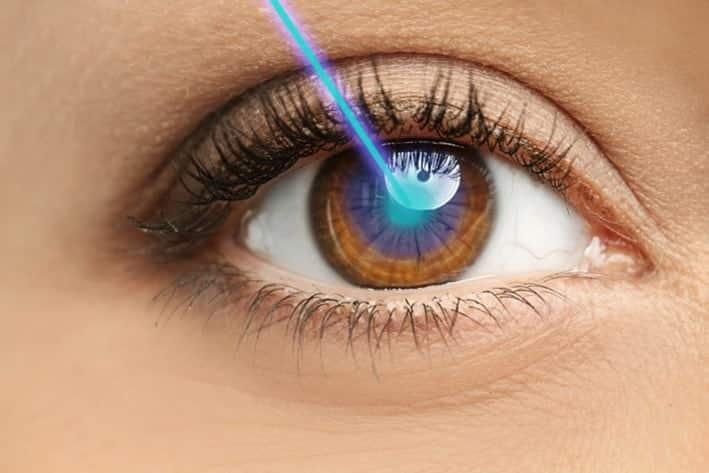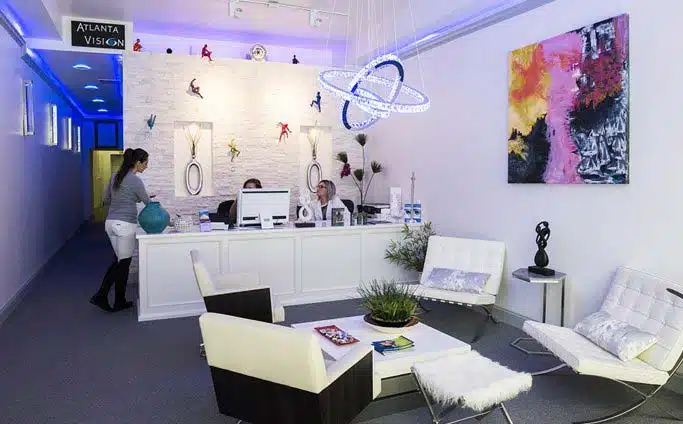How Does LASIK Eye Surgery Work?
During their lifetimes, millions of people will experience the need for vision correction of some kind at some point. Genetics, the natural aging process, accidents, and injuries are all reasons the need for vision correction arises. This is why many choose to go with LASIK eye surgery.
For most people, getting glasses has traditionally been the most common solution for vision correction (and for most of human history, they’ve been the only solution). Still, glasses have always come with some disadvantages. Commonly, people lose, break, or forget their glasses, which can be disruptive for people with more severe impairment. Also, most people will have to change their prescription occasionally, requiring more doctor trips, new sets of glasses, etc. Glasses also can fog up, slip off the bridge of the nose, get in the way of applying makeup, and feel uncomfortable. And some people don’t like how they look with glasses on and feel sensitive about it.
When contact lenses became available, many switched to them because they eliminated many of the disadvantages of glasses. However, some remained, changing prescriptions, losing and damaging them, and forgetting to put them on. They also came with some drawbacks, such as having to apply and take them out daily, storing them, and keeping them clean. As a result, many preferred them over glasses or got them in addition to choices for various situations.
In more recent history, a game-changer came upon the scene: Laser eye surgery. This treatment provides, for those who are a good candidate for it, permanent vision correction following a one-time procedure, and with none of the drawbacks of glasses and contact lenses. There are different laser eye surgery procedures, but LASIK eye surgery is the most popular and common one.

What Is LASIK Eye Surgery?
LASIK eye surgery is a process that can treat and correct myopia (short-sightedness), hypermetropia (long-sightedness), astigmatism, and presbyopia (the need for reading glasses). Using a laser, an eye surgeon reshapes the cornea, the transparent layer at the front of the eye. In LASIK, the laser is called a femtosecond laser, and the reshaping takes place beneath a thin micro-thin flap created with the laser. During the procedure, the surgeon applies anesthetic eye drops to reduce any pain the patient experiences, and a small clip keeps the eyelid open. This reshaping of the cornea results in incoming light focusing directly on the cornea, dramatically improving natural vision.
Do I Qualify for LASIK Eye Surgery?
Since every case is unique, the first step is to schedule a consultation with an eye surgeon. During this consultation, the doctor will ask questions and perform eye tests to determine if you’re a good candidate for LASIK. Some practices offer online vision tests on their websites. Unfortunately, these tests do not determine whether or not LASIK is right for you. Still, the results can indicate whether it will be worth your while to schedule that consultation. Most doctors hold these consultations free of charge, but if LASIK is not the right choice for you, the online test can save you the time and hassle of making and keeping the appointment.
Read More: Good Candidates for LASIK Eye Surgery?
What Are the Specific Benefits of LASIK?
We mentioned already that Lasik offers vision correction without all the drawbacks of glasses and contact lenses, but here are some concrete benefits LASIK provides:
- First, there will be no need for glasses or contact lenses.
- With crisp, detailed vision, you can go about your daily routines and enjoy your favorite activities more than ever.
- Over time, the investment in LASIK pays for itself as you no longer have to buy new glasses, contact lenses, and cleaning supplies as your prescription changes.
- The whole process is swift. The procedure takes about 10 minutes, with the laser treatment usually lasting only 15 to 90 seconds. The total time at the office is about an hour in and out.
- In addition to being quick, the procedure is virtually painless.
- It also couldn’t be more convenient. The procedure is performed at your eye surgeon’s office, so there are no trips to fancy medical centers or hospitals. After the procedure, you get to go back home.
- Downtime is minimal. Usually, patients can get back to their regular schedules and routines very quickly.
- Results are apparent and fast. Most of the time, patients noticed improved vision on the same day as their procedure or the next day.
What Should I Expect When I Am Having LASIK Performed?
If your doctor determines you’re a good candidate for LASIK, you’ll schedule a time and date for the procedure as your next step. Here’s what you can expect after that:
- You’ll arrive at the office where your procedure will take place. It’s strongly recommended that you have a trusted friend or relative to drive you home afterward.
- Prior to the surgery, the surgeon and their staff will explain what to expect before, during, and after the surgery, and they’ll be able to answer any last questions you have. This part of the process leaves you confident and comfortable before the surgery begins.
- Staff will also numb your eyes before the treatment begins to reduce pain.
- You’ll be awake during the entire procedure, which we explained is very short.
- You should experience sharper vision within 8 hours. Then, the doctor will talk to you about activities to avoid or reduce until the healing process is fully complete.
Schedule Your LASIK Consultation with the Atlanta Vision Institute
The Atlanta Vision Institute is recognized as a regional leader for LASIK eye surgery in Atlanta. Using leading-edge technology, board-certified and award-winning Dr. Farooq Ashraf has helped hundreds/thousands of patients see clearly and feel better about their eyes. Dr. Ashraf was voted Best LASIK Eye Doctor in Atlanta in 2020 and continues to be a widely respected, innovative ophthalmologist.
You can take our online LASIK test. After that, contact us today, and let’s schedule your consultation and get started on seeing the world better!

Please Take Our LASIK or Cataract Surgery Quiz
Take our vision quiz to find out if you qualify for LASIK or cataract surgery!


